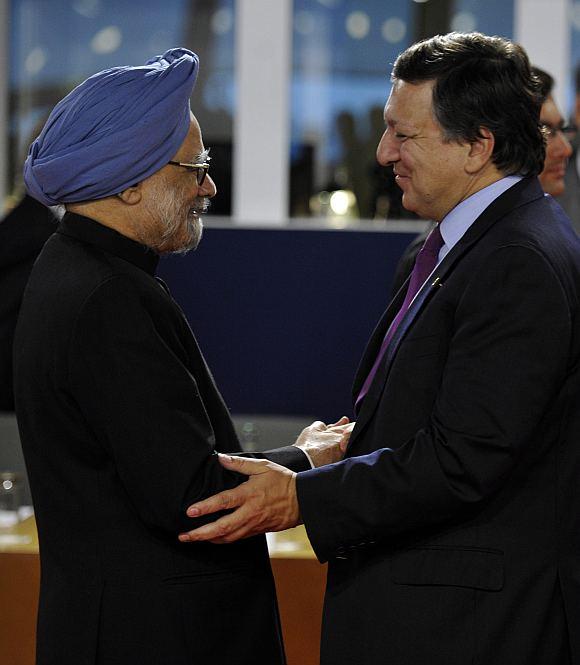
Extending full support to Europe, Prime Minister Manmohan Singh said on Thursday that a quick solution to the Eurozone sovereign debt crisis was required but it should not be at the cost of growth of the developing nations like India.
The prime minister said that the Cannes G20 Summit would be judged by the ability of the leaders of the world's largest economies to deal with financial instability emanating from the Euro zone periphery, quickly and decisively.
Bemoaning Greece's disruptive move to seek a referendum on the plan devised by Eurozone leaders to reduce Greek debt, combined with a new EU-IMF programme providing additional resources, the prime minister said that ways should be "found to manage the situation so that a package can be put in place as quickly as possible".
India, he said, supported the efforts to help resolve the Eurozone sovereign debt crisis but underlined that the solution to the crisis had to be found by the European Union and the Eurozone themselves.
...
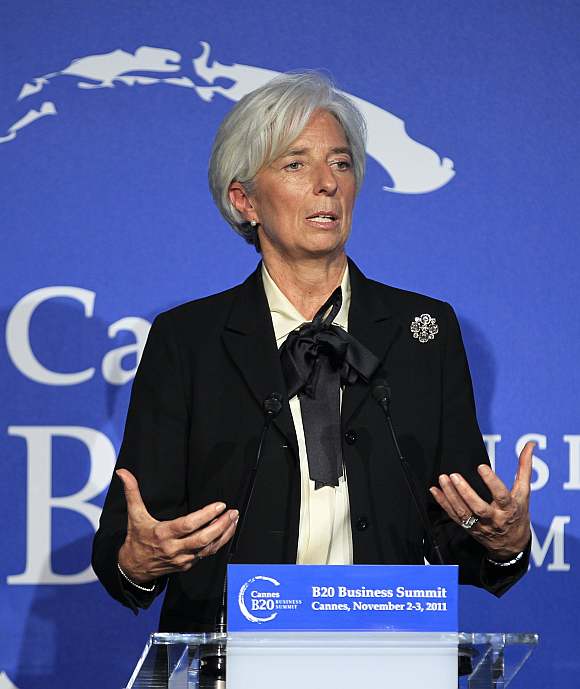
India and the other emerging markets have been the victims of the profligacy and financial misadventures of the West.
India also advocated a greater role of the International Monetary Fund in the efforts to help resolve the Eurozone crisis, but said that it should not be at the cost of the needs of the developing nations.
"The IMF must keep the situation under close watch as part of regional surveillance and it should also be willing to help in an appropriate manner if asked to do so," Dr Singh said.
"We strongly support the IMF playing its part in restoring stability in Europe, but the IMF must also keep in mind the liquidity requirements of developing countries that are not at the centre of the crisis, but may nevertheless be adversely affected as innocent bystanders," he said.
...
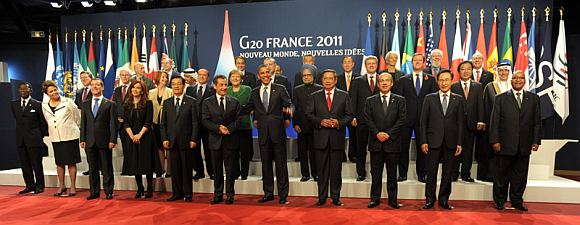
While the prime minister lauded the Eurozone nations' initiatives on evolving mechanisms to raise resources for the European Financial Stability Facility and strengthen fiscal discipline, he also pointed out that though these measures addressed deficiencies of having a monetary union without a fiscal union, "the effectiveness of these arrangements to cope with the crisis is yet to be tested".
He called for strengthening of global financial regulation, stating that there "should be common standards that are implemented simultaneously in all jurisdictions, to avoid a race to the bottom".
He stressed that the developmental needs of developing countries must be kept in mind in these regulatory reforms.
The prime minister said that the tight regulatory standards of the Indian financial markets have helped India avoid financial crises resulting from excessive leverage "but it came with a cost, as it increased the cost of intermediation".
"Emerging markets therefore were engaged in progressive reduction in tight regulations with a view to modernising their financial markets and expanding intermediation," he added.
...
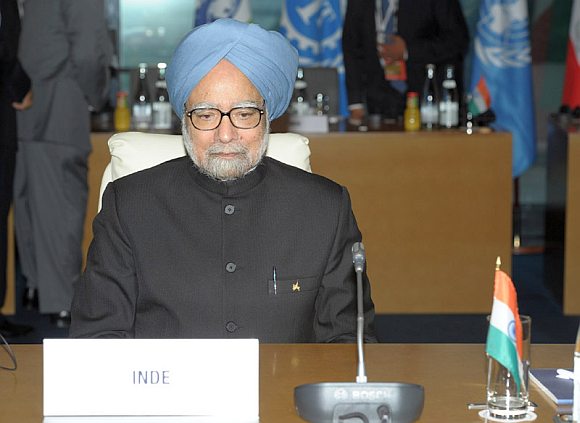
The priorities financial sector priorities -- as also in many emerging markets -- before the Eurozone crisis were not regulatory but developmental, with the aim of deepening and developing new markets to sustain high rates of growth in the real economy.
These priorities included financial inclusion, provision of long-term funding instruments for infrastructure, development of liquid bond markets to improve monetary policy transmission, etc.
The prime minister said that nothing has happened in Indian financial markets or globally that warrants changing these priorities forIndia. "We need to be sure that the regulatory reforms being introduced globally will not hamper this process," he said.
He said that this is where India's concerns are different from those of the West. "For example, while banking capital needs to be strengthened in India, this is not on account of higher risks but because credit is projected to expand at a very fast pace to feed the high real growth that we expect," Dr Singh said.
...
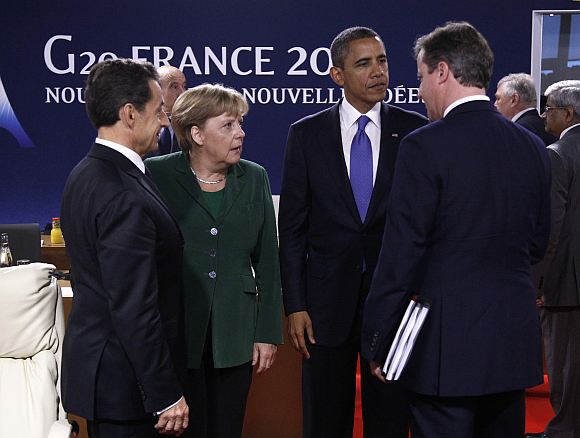
Giving another example, he said that while the theory that cost of a bailout falls on equity holders rather than on taxpayers "is robust", in India large segments of the financial sector, especially banking and insurance, are mostly state-owned and equity holders and taxpayers are mostly one and the same.
"In this environment it is difficult to see why a financial sector tax, which would only raise the cost of capital even further, would be appropriate," he said, clearly showing India's displeasure at the proposed Tobin tax (named after American economist James Tobin), which imposes levies on financial transactions.
The prime minister said that tax evasion and illicit flows have seen the migration of tax bases in developing countries abroad and are serious problems. He called upon the G20 to send a strong message to curb such activity.
He said that G20 countries should take the lead in agreeing "to automatic exchange of tax-related information with each other, irrespective of artificial distinctions such as past or present, for tax evasion or tax fraud, in the spirit of our London Summit that "the era of bank secrecy is over".
...

The prime minister said that while dealing with the short-term problem of instability we must also face the challenge of orchestrating a broadbased recovery and sustainable growth in industrialised countries and in developing countries. This is what the Mutual Assessment Process exercise is meant to do.
The Mutual Assessment Process needs to focus on structural reforms in all G-20 countries to increase efficiency and competitiveness over the medium term. This would help revive the animal spirit of investors which is necessary to allow us to shift the burden of sustaining demand from the public to private sector, the prime minister said.
"Such rebalancing is necessary to make the recovery sustainable. We, in India, are taking steps to ensure a return to high growth. Our economy has slowed down in the current year and GDP growth is likely to be between 7.6 and 8 percent. Like many other emerging market countries, we too are experiencing high levels of inflation. We hope to go back to higher growth in 2012-13, together with a moderation in inflation," he added.
"Our medium-term strategy focuses on a revival of investment especially in infrastructure, and continuing efforts to reduce our fiscal deficit through improved revenue collection which is expected to come from tax reforms," he said.